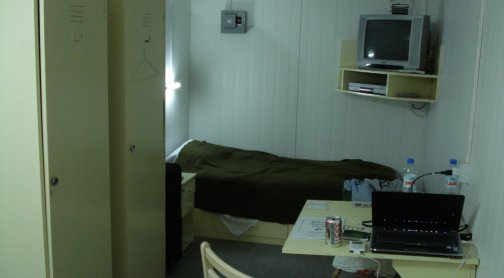The economy is in unmistakable decline and it is astonishing how fast perceptions change. Although my investments have tanked like everybody else’s, I have to caveat that my personal exposure to the downturn is not immediately significant and while I suppose the value of my forests has declined, land endures and gives you a feeling of secure permanence not possible with paper assets.
Below is Pentagon Mall in Arlington. Nice food court. Still crowded.
I have some prejudices that I should also state up front. I don’t like ostentatious displays of wealth and I observe that the culture has coarsened in the last few decades. People are no longer self conscious about bragging about their wealth. There are all sorts of programs on TV where rich celebrities brazenly show off their riches. Nearer to home, the Northern Virginia countryside is studded with giant houses with expensive cars parked outside. I am glad that affluence has spread so widely in America, but the spread of opulence is not so welcome. It is even worse that much of this opulence was bought on credit. I don’t know if we are at the end of the long economic boom that started in 1982, but after twenty-five years of good times (with tame downturns), we have forgotten what hard times look like. The long run of good times has also decoupled wealth from work in a pernicious way.
Rock stars, and their equivalents in the corporate, sports or entertainment world, make such piles of money so quickly that it degrades the hard work of ordinary people. Add to this a capricious legal system that can reward someone for his own stupid behavior or bankrupt a prudent person and you have a really noxious cultural stew. Rock stars, big bosses, big payout plaintiffs and millionaire sport stars are rare. But they cast a long shadow and their influence is enhanced by a media that loves them while exposing all their flaws and weaknesses.
It bothers me that entertainers can do drugs and treat the people around then like crap and still be admired for their ability to bring in the money. Need I mention executives in private jets going to ask Washington for a hand? I find it offensive that sports stars can literally be criminals and still rake in the big bucks. (Green Bay’s great halfback, Paul Hornung, was suspended at the height of his career for betting relatively small sums on football games. He also, BTW, earlier had to do his service in the army and play football while on weekend passes.)
I don’t object to people having money in general. In fact, I support it. Making money is a laudable goal. If you are earning money you are probably producing something other people need or want. But those who earn the big bucks should be circumspect in what they do with it and how they behave in public.
The irony of today’s conspicuous consumption is that it is to some extent based on the egalitarian idea that we are all the same. Greater wealth, whether that comes from money, talent or just good luck, SHOULD bring greater responsibility. But if we are all the same, those who just happen to have more have no special responsibilities. There was never a golden age where the rich & famous behaved in a really responsible way, but it has indeed got worse.
Below – Rowing practice outside GWU in Washington.
I recently read a biography of Dean Acheson. He traveled in some rich and privileged circles and the book gave me some insights. In those days, students at the best universities lived in relative simplicity. The established rich to some extent hid their wealth and played down their consumption. There was a general acceptance that young people should experience some sort of Spartan-like upbringing. The good man taught his son that he was special and had a special responsibility. If this was often hypocritical, at least is was the acknowledged norm.
Hypocrisy, after all, is the tribute vice pays to virtue. In our lifetimes we have elevated hypocrisy and judging to the level of major taboos. We want people to be genuine and be themselves. The problem is that when people only aspire to be themselves, they set their sights way too low. We should all want to be better than we are and this means that we are not as good today as we hope we will be tomorrow. It also means that some people are not as good as others. We can make distinctions. We must make distinctions. We need to be more judgmental because our non-judgmental ethic has let the a-holes off the hook. It has allowed crass low-lives to assert that they are just as good – better – than most others because they have cash. Tom Arnold said of himself and his then wife the attractive Rosanne Barr, ‘‘We’re America’s worst nightmare: white trash with money!” YES! That is a nightmare and it has become much more widespread. Let’s wake up from this nightmare. I expect that when you get more than others you also take on more obligation to act responsibly. If that is an elitist idea, I embrace the concept.
Since the onset of the current economic crisis, we have heard more talk about thrift and prudence. It is no longer considered clever to have borrowed and deployed money you couldn’t pay back. I hope that people will soon come to look down on and judge negatively huge displays of wealth and so devalue them. In hard times people should be ashamed to parade their good fortune. There are better things to do with your money than buy bling and attend gatherings of the rich, famous and beautiful. I have no illusions that such things will go away, but I would be content to have it less in our faces.











